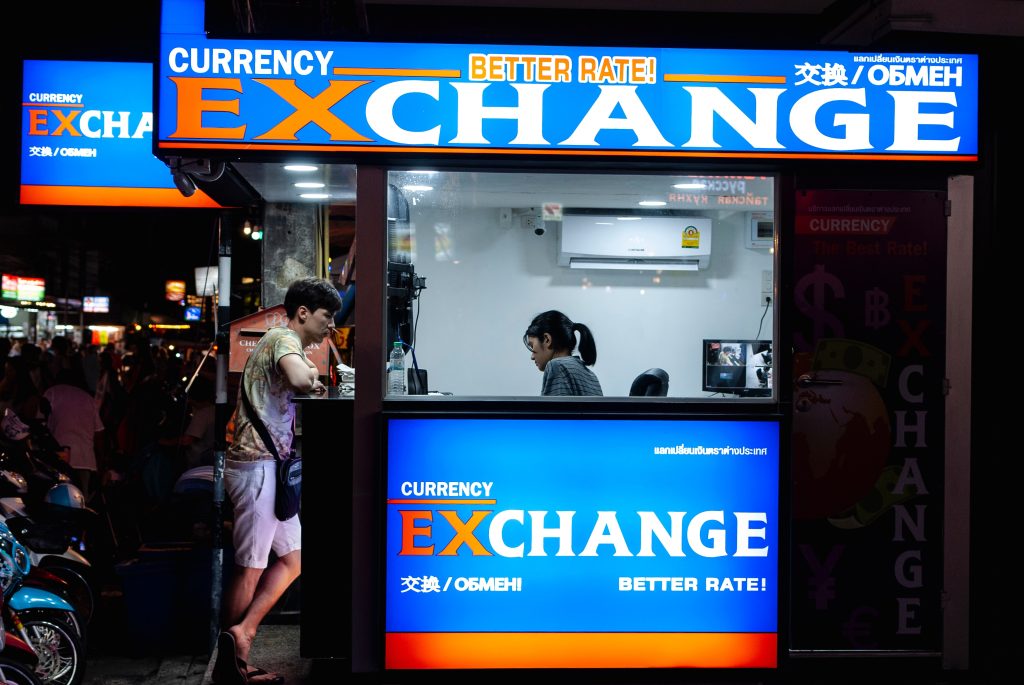
Introduction:
When it comes to exchanging currencies, many individuals find themselves facing the frustrating reality of bank markup rates. These rates can erode the value of your money, leading to substantial losses during international transactions. Fortunately, there are various strategies you can employ to mitigate or eliminate the impact of these exchange markup rates. In this blog post, we will explore several effective strategies, including the ETF Horizons Utility ETF strategy, along with other alternatives. By understanding these approaches, you can make informed decisions and protect the value of your money during international transactions.
The Problem with Bank Markup Rates
Currency exchange transactions are an integral part of international travel, commerce, and finance. However, the bank markup rate poses a significant challenge for individuals and businesses. In this section, we will discuss the concept of bank markup rates, highlight their impact on currency exchange transactions, and provide real-life examples to illustrate their financial implications. Understanding these charges is essential for awareness of the potential losses incurred during exchanges.
Understanding Bank Markup Rates
Banks and other financial institutions typically make money from currency exchanges by buying currencies at a lower rate and selling them at a higher rate. The difference between these two rates represents the bank’s markup or spread. While banks have the right to charge fees for their services, the challenge lies in the fact that the rates offered by banks are often less favorable compared to the real market exchange rates.
Bank markup rates have a considerable impact on currency exchange transactions, and it’s vital to grasp their significance in order to make informed choices. On average, banks impose markup fees ranging from 2% to 5% above the mid-market exchange rate. This means that when you exchange currency through a bank, you could end up paying a significantly higher amount or receiving less value than the actual worth of the currency. It’s important to note that the specific markup rates can vary among different banks and regions, underscoring the need for thorough research and rate comparison prior to engaging in any currency exchange transaction.
According to a report by the Consumer Financial Protection Bureau (CFPB), major banks typically charge markup rates within the range of 2% to 3% for major currencies. Furthermore, a study conducted by MyCurrencyTransfer discovered that some banks can charge markup rates of up to 5% or even higher. These findings serve as a reminder of the potential losses that individuals and businesses may face if they rely solely on banks for currency conversions.
Understanding the average markup rates charged by banks provides an important foundation for exploring alternative strategies to mitigate these costs. By exploring options beyond traditional banking channels, individuals and businesses can potentially reduce or eliminate the impact of bank markup rates on their currency exchange transactions.
The Impact on Currency Exchange Transactions in Canada
In this section, we will explore specific scenarios where individuals and businesses in Canada experience the impact of currency exchange transactions. These examples will shed light on the financial implications and challenges faced in different situations.
- Snowbirds: Many Canadians are snowbirds who spend part of the year in warmer climates, such as the United States or Mexico. For these individuals, currency exchange is a regular part of their lifestyle. Let’s say you’re a Canadian snowbird who spends six months in the United States each year. Throughout this period, you need to convert your Canadian dollars into US dollars and vice versa. The bank markup rates applied to these conversions can significantly affect your purchasing power and overall expenses. Over time, the cumulative impact of these markup rates can result in substantial losses.
- International Students: Canada is home to numerous international students who come from all over the world to pursue their education. These students often need to convert their home currency into Canadian dollars to cover tuition fees, living expenses, and other costs. The bank markup rates can have a considerable impact on their budgets. For example, a student exchanging a significant amount of money to pay for their education may face a substantial loss due to the markup rates. This can lead to financial strain and affect their overall study experience.
- Import-Dependent Businesses: Many Canadian businesses rely on importing goods from foreign suppliers. Whether it’s electronics, clothing, or raw materials, the cost of these imports is influenced by currency exchange rates. The markup rates imposed by banks can significantly impact the overall expenses of import-dependent businesses. For instance, if a company imports products from China and the markup rate is 5%, the cost of each unit increases, reducing profit margins and potentially leading to higher prices for consumers.
- Overseas Investors: Canada attracts foreign investors who contribute to the country’s economy. These investors may purchase Canadian assets, such as real estate or stocks, and need to convert their home currency into Canadian dollars for these transactions. The markup rates charged by banks can affect the number of Canadian dollars they receive, ultimately impacting their investment decisions and potential returns. Higher markup rates can discourage foreign investment and have implications for the overall economy.
- Small Businesses Expanding Abroad: Small businesses in Canada often strive to expand their operations into international markets. This expansion may involve setting up branches or subsidiaries in other countries, which requires currency exchange for various expenses like establishing local operations, paying employees, and conducting transactions. The bank markup rates can significantly impact the costs associated with these expansion efforts, potentially hindering small businesses’ ability to compete globally.
- International Travelers: For individuals planning to travel abroad, currency exchange is a common necessity. Imagine you’re a Canadian traveler visiting the United States. When exchanging Canadian dollars (CAD) for US dollars (USD) at a bank or currency exchange service, you’ll encounter the bank markup rates we discussed earlier. These rates can significantly affect the amount of foreign currency you receive. For instance, if the markup rate is 3% and you exchange CAD 1,000, you would effectively lose CAD 30 due to the markup. This reduction in your purchasing power can have an impact on your overall travel budget.
- Online Shoppers: With the rise of e-commerce, many Canadians shop online from international retailers. However, when making purchases in foreign currencies, individuals may face unfavorable exchange rates. For example, suppose you are buying a product from a US-based website, and the transaction is in USD. When your credit card statement arrives, you may notice that the amount charged in Canadian dollars is higher than expected due to the bank’s markup rate. This can result in inflated prices for imported goods and impact your online shopping experience.
These scenarios illustrate how individuals and businesses in Canada are affected by the impact of currency exchange transactions. The additional costs resulting from bank markup rates can erode purchasing power, inflate expenses, and hinder the growth and profitability of businesses engaged in international activities.
It’s important to be aware of these challenges and explore alternative strategies and services that can help mitigate the impact of bank markup rates. In the next section, we will delve into some of these strategies that individuals and businesses can consider to avoid or minimize the impact of bank markup rates on currency exchange transactions in Canada.
Exploring Different Strategies to Avoid Bank Markup Rates
In this section, we will delve into various strategies that individuals and businesses in Canada can employ to avoid or minimize the impact of bank markup rates on currency exchange transactions. By exploring these alternatives, you can potentially save money and optimize your currency exchange process. Let’s explore five strategies:
- ETF Horizons Utility ETF Strategy
One effective strategy to avoid bank markup rates is to consider investing in ETFs (Exchange-Traded Funds) that focus on currency hedging. One such example is the ETF Horizons Utility ETF strategy. This approach involves investing in a utility sector ETF that holds securities denominated in foreign currencies. By doing so, you indirectly gain exposure to foreign currencies without having to directly convert your funds at bank markup rates. This strategy can help you diversify your portfolio while minimizing the impact of currency exchange fees.
- Peer-to-Peer Currency Exchange Platforms
Peer-to-peer currency exchange platforms provide an alternative to traditional banks by connecting individuals and businesses directly for currency exchange purposes. These platforms match users looking to buy a particular currency with those looking to sell the same currency. By cutting out the middleman, users can negotiate favorable exchange rates and reduce or eliminate bank markup rates.
Two popular peer-to-peer currency exchange platforms in Canada are KnightsbridgeFX and TransferWise. These platforms have gained recognition for their user-friendly interfaces, competitive exchange rates, and transparent fee structures. Let’s take a closer look at each platform:
- KnightsbridgeFX (https://www.knightsbridgefx.com/): KnightsbridgeFX is a peer-to-peer currency exchange platform that aims to provide customers with better exchange rates and lower fees compared to traditional banks. They connect individuals directly with currency traders, allowing users to get competitive rates for their currency conversions. KnightsbridgeFX ensures a secure and streamlined process, enabling users to transact conveniently and save money on exchange fees.
- TransferWise (https://transferwise.com/): TransferWise is a renowned peer-to-peer currency exchange platform that operates globally, including in Canada. It allows users to send, receive, and convert money at mid-market exchange rates, which are generally more favorable than bank rates. TransferWise transparently displays the fees involved in each transaction, making it easier for users to compare costs and make informed decisions. The platform’s peer-to-peer model ensures that users can exchange currencies directly with other users, resulting in potentially lower fees and better rates.
By utilizing peer-to-peer currency exchange platforms such as KnightsbridgeFX and TransferWise, individuals and businesses in Canada can enjoy the benefits of competitive exchange rates, transparent fee structures, and the convenience of direct currency transactions. These platforms empower users to negotiate favorable rates and reduce their reliance on traditional banks, ultimately saving money on currency exchange transactions.
Remember to conduct thorough research, compare rates, and evaluate the security measures provided by each platform before engaging in any currency exchange transactions.
- Prepaid Travel Cards
Prepaid travel cards are a convenient and cost-effective option for individuals who frequently travel or make international purchases. These cards allow you to load them with a specific currency before your trip, locking in the exchange rate at that time. By using a prepaid travel card, you can avoid bank markup rates as the conversion is already done beforehand. Additionally, some prepaid travel cards offer competitive exchange rates and lower fees compared to traditional bank transactions. Examples of prepaid travel cards available in Canada include Revolut and KOHO.
- Revolut (https://www.revolut.com/): Revolut is a well-known digital banking platform that offers prepaid travel cards. Users can load their Revolut card with multiple currencies and benefit from interbank exchange rates for international transactions. With Revolut, users can easily manage their funds through a mobile app, track their expenses, and enjoy various additional features such as budgeting tools and fee-free ATM withdrawals up to a certain limit.
- KOHO (https://www.koho.ca/): KOHO is a popular fintech company in Canada that provides a reloadable prepaid Visa card. Users can load their KOHO card with Canadian dollars and use it for international transactions. The card utilizes Visa’s exchange rates, which are generally more favorable than traditional bank rates. KOHO also offers additional features like spending insights, automated savings, and cashback rewards, making it an attractive option for frequent travelers.
When considering a prepaid travel card, it is important to compare the exchange rates, fees, and additional features offered by different providers. Additionally, be aware of any potential limitations or restrictions associated with the card, such as reload limits or inactivity fees.
- Forex Brokers
Forex (Foreign Exchange) brokers specialize in facilitating currency exchange transactions for individuals and businesses. These brokers offer competitive exchange rates and lower fees compared to banks. By using a Forex broker, you can bypass bank markup rates and access a wider range of currencies. Forex brokers also provide additional services such as hedging options and personalized support. Some popular Forex brokers in Canada include OANDA and Interactive Brokers.
- OANDA (https://www.oanda.com/): OANDA is a well-established Forex broker that provides online currency trading services. They offer competitive exchange rates and provide a user-friendly trading platform that allows individuals to execute currency exchange transactions conveniently. OANDA is known for its transparent fee structure and reliable customer support.
- Interactive Brokers (https://www.interactivebrokers.ca/): Interactive Brokers is a reputable brokerage firm that offers a wide range of financial services, including Forex trading. They provide access to a diverse selection of currencies and offer competitive exchange rates. Interactive Brokers also offers advanced trading tools and educational resources to assist individuals in making informed trading decisions.
When choosing a Forex broker, it’s important to consider factors such as the available currency pairs, transaction fees, trading platform features, customer support, and regulatory compliance. Conducting thorough research and comparing different brokers can help you find the one that best suits your needs.
Using Forex brokers like OANDA and Interactive Brokers can provide individuals and businesses in Canada with a cost-effective and efficient solution for currency exchange. By accessing competitive rates and avoiding bank markup fees, individuals can potentially save significant amounts of money on their foreign exchange transactions.
However, it’s essential to note that Forex trading involves risks, and individuals should educate themselves about the market dynamics and carefully consider their investment objectives before engaging in trading activities.
Disclaimer: Trading foreign exchange on margin carries a high level of risk and may not be suitable for all investors. It’s important to carefully consider your investment objectives, level of experience, and risk tolerance before participating in Forex trading.
- Local Currency Exchange Services
Local currency exchange services, also known as currency exchange bureaus, are independent businesses that specialize in buying and selling foreign currencies. These services often offer more competitive rates compared to banks due to their lower operating costs. By using a local currency exchange service, you can minimize bank markup rates and potentially get a better deal on your currency exchange transactions. It’s advisable to research and compare rates among different currency exchange services in your area to ensure you get the best rates available.
Some reputable local currency exchange services in Canada include:
- Calforex (https://www.calforex.com/)
- Continental Currency Exchange (https://www.continentalcurrency.ca/)
Both of these local currency exchange services in Canada have a strong presence and reputation in the country. They offer competitive rates and have convenient locations for currency exchange.
Before engaging with a local currency exchange service, it’s advisable to check their policies, fees, and any additional charges that may apply. Transparency is key, so ensure that the service provides clear information about their rates and any associated costs. By being proactive in your research and comparing different options, you can maximize your savings and minimize the impact of bank markup rates on your currency exchange transactions.
Understanding ETFs and the Horizons Utility ETF
In this section, we will explore the concept of Exchange-Traded Funds (ETFs) and delve into the Horizons Utility ETF as an example of a strategy that can help individuals and businesses avoid the mark-up rates charged by banks on currency exchange transactions.
What are ETFs?
Exchange-Traded Funds (ETFs) are investment funds that are traded on stock exchanges, similar to individual stocks. ETFs are designed to track the performance of a specific index, such as a stock index or a bond index. They offer investors the opportunity to gain exposure to a diversified portfolio of assets, which can include stocks, bonds, commodities, or even currencies.
Exploring the Horizons Utility ETF and Norbert’s Gambit Strategy
In this section, we will explore the Horizons Utility ETF as a potential investment opportunity and introduce a strategy known as Norbert’s Gambit that can be used to minimize currency exchange costs when purchasing ETFs.
Understanding the Horizons Utility ETF
The Horizons Utility ETF is an exchange-traded fund (ETF) that focuses on the utilities sector within the Canadian market. This ETF aims to track the performance of an underlying index composed of leading utility companies involved in sectors such as electricity, gas, and water services. By investing in the Horizons Utility ETF, individuals and businesses can gain exposure to the utilities sector and potentially benefit from its growth and stability.
Introducing Norbert’s Gambit
Norbert’s Gambit is a strategy used to convert Canadian dollars (CAD) into U.S. dollars (USD) or vice versa at a lower cost than traditional currency exchange methods. This strategy involves leveraging the dual-listing of certain ETFs on both Canadian and U.S. stock exchanges to achieve a more favorable exchange rate. By employing Norbert’s Gambit, investors can bypass the mark-up rates charged by banks and save on currency conversion fees.
How Norbert’s Gambit Works
Norbert’s Gambit typically involves the following steps:
a. Select a Dual-Listed ETF: Choose a dual-listed ETF that is listed on both the Canadian and U.S. stock exchanges. A commonly used ETF for this strategy is the Horizons US Dollar Currency ETF (DLR/DLR.U), which is designed to track the value of the U.S. dollar relative to the Canadian dollar.
b. Buy the Canadian-listed ETF: Purchase shares of the Canadian-listed version of the selected ETF (e.g., DLR) using Canadian dollars.
c. Journal the Shares: Contact your brokerage to request a journaling of the shares from the Canadian-listed ETF to the U.S.-listed version (e.g., DLR.U). This process involves converting your Canadian-listed ETF shares to the U.S.-listed version, effectively moving your investment to the U.S. market.
d. Sell the U.S.-listed ETF: Once the shares have been successfully journaled, sell the U.S.-listed version of the ETF (e.g., DLR.U) for U.S. dollars.
Benefits of Norbert’s Gambit with the Horizons Utility ETF
By using Norbert’s Gambit in combination with the Horizons Utility ETF, investors can enjoy several advantages:
a. Cost Savings: Norbert’s Gambit allows investors to avoid the mark-up rates and currency conversion fees charged by banks, resulting in significant cost savings, especially for larger currency conversions.
b. Better Exchange Rates: This strategy enables investors to access more favorable exchange rates compared to traditional currency exchange methods. By directly buying and selling the U.S.-listed version of the ETF, investors can take advantage of tighter bid-ask spreads.
c. Convenience and Accessibility: The availability of dual-listed ETFs, such as the Horizons Utility ETF, and the accessibility of online brokerage platforms make implementing Norbert’s Gambit relatively straightforward and convenient.
It’s important to note that Norbert’s Gambit involves a certain level of complexity and may not be suitable for all investors. Consulting with a financial advisor or conducting thorough research on the strategy is recommended before implementing it.
In conclusion, the Horizons Utility ETF provides an opportunity for investors to gain exposure to the utilities sector in Canada. By combining this ETF with Norbert’s Gambit, investors can potentially minimize currency exchange costs and take advantage of more favorable exchange rates. However, it’s crucial to carefully evaluate the risks and suitability of this strategy and seek professional advice if implementing Norbert’s Gambit. Understanding the intricacies of the strategy and conducting proper research will help investors make informed decisions.
It’s worth noting that while Norbert’s Gambit can be a cost-effective approach for currency conversion, it may not be suitable for all investors. Factors such as transaction costs, market volatility, and the specific requirements of each brokerage need to be taken into account. It is always recommended to consult with a financial advisor or a qualified investment professional before implementing any investment strategy.
Comparing Strategies: Pros and Cons
Now that we have explored several strategies to avoid or minimize the impact of bank markup rates on currency exchange transactions, let’s compare these strategies and examine their pros and cons. Each strategy offers its own advantages and considerations, so it’s important to evaluate them based on your specific needs and preferences.
ETF Horizons Utility ETF Strategy:
Pros:
- Diversification: Investing in ETFs allows you to gain exposure to a diversified portfolio of assets, which can help mitigate risks and potentially enhance returns.
- Currency hedging: The ETF Horizons Utility ETF strategy indirectly exposes you to foreign currencies without the need for direct currency conversions at bank markup rates.
- Accessibility: ETFs are traded on stock exchanges and can be easily bought and sold through brokerage accounts, providing convenient access to currency exposure.
Cons:
- Market volatility: ETFs are subject to market fluctuations and can experience price volatility, which may impact the value of your investment.
- Exchange fees: While this strategy helps minimize or eliminate bank markup rates, you may still incur brokerage fees and transaction costs when buying or selling ETFs.
Peer-to-Peer Currency Exchange Platforms:
Pros:
- Competitive rates: Peer-to-peer currency exchange platforms often offer more competitive exchange rates compared to traditional banks, allowing you to get more favorable rates for your currency conversions.
- Lower fees: By directly transacting with other users on these platforms, you can potentially avoid or reduce bank markup rates and enjoy lower transaction fees.
- Convenience: Peer-to-peer currency exchange platforms provide user-friendly interfaces and streamlined processes, making it easier to exchange currencies.
Cons:
- Limited availability: While peer-to-peer currency exchange platforms are gaining popularity, they may not have the same level of accessibility or acceptance as traditional banks. It’s important to ensure that the platform you choose supports the currencies you need and has sufficient liquidity.
- Security concerns: When using peer-to-peer platforms, it’s crucial to consider the security measures in place to protect your funds and personal information. Conduct thorough research and choose platforms with robust security protocols.
Prepaid Travel Cards:
Pros:
- Locked-in exchange rates: With prepaid travel cards, you can load them with a specific currency before your trip, locking in the exchange rate at that time. This allows you to avoid bank markup rates as the conversion is already done beforehand.
- Convenience and security: Prepaid travel cards are convenient to use and often come with additional security features such as PIN protection and the ability to block or freeze the card if it’s lost or stolen.
- Budget management: Prepaid travel cards can help you stick to a specific budget during your travels as you load them with a predetermined amount.
Cons:
- Limited acceptance: While major currencies are widely supported, prepaid travel cards may have limitations in terms of acceptance at certain establishments or in remote locations. It’s important to research the acceptance of the card in your destination.
- Reload and withdrawal fees: Some prepaid travel cards may have fees associated with reloading funds or withdrawing cash from ATMs. Be sure to understand the fee structure and any potential limitations before obtaining a card.
Forex Brokers:
Pros:
- Competitive rates: Forex brokers often offer more competitive exchange rates compared to banks, enabling you to get better value for your currency conversions.
- Wider currency selection: Forex brokers provide access to a broader range of currencies, allowing you to trade and exchange currencies beyond what traditional banks may offer.
- Additional services: Forex brokers may provide additional services such as hedging options and personalized support, which can be beneficial for individuals and businesses engaged in international transactions.
Cons:
- Market knowledge and risks: Engaging with Forex brokers requires an understanding of market dynamics and investment risks. Forex trading involves potential losses, and individuals should carefully consider their investment objectives and risk tolerance before participating
Local Currency Exchange Services:
Pros:
- Competitive rates: Local currency exchange services often offer more competitive rates compared to banks. Due to their specialization and lower operating costs, they may provide better exchange rates, allowing you to get more value for your money.
- Lower fees: Currency exchange bureaus may have lower or no transaction fees compared to banks. This can result in cost savings, especially for larger currency conversions.
- Convenient locations: Local currency exchange services typically have multiple locations, making it easier for you to find a branch near you. This can save you time and effort compared to traveling to a bank branch.
- Quick transactions: Currency exchange bureaus often prioritize quick transactions, enabling you to exchange your currency promptly without lengthy processes or waiting times.
- Availability of exotic currencies: Some local currency exchange services may offer a wider range of currencies, including exotic or less commonly traded ones. This can be beneficial if you require a specific currency that may not be readily available at banks.
Cons:
- Limited services: Local currency exchange services typically focus solely on currency exchange and may not provide additional banking services. If you require other banking services along with currency exchange, you may need to visit a bank or use multiple service providers.
- Potential for scams: While there are reputable local currency exchange services, it’s important to be cautious and choose reliable providers. Some unregulated or fraudulent businesses may operate in the market, posing a risk of scams or fraudulent transactions.
- Lack of deposit insurance: Unlike banks, local currency exchange services may not offer deposit insurance. This means that your funds may not be protected in case of bankruptcy or financial difficulties faced by the exchange service.
- Limited availability in certain areas: Local currency exchange services may have a limited presence in certain regions or cities, which can make it inconvenient if you reside or travel to an area where their services are not available.
- Exchange rate fluctuations: Like any currency exchange transaction, rates can fluctuate. If you choose to use a local currency exchange service, you may be exposed to exchange rate volatility, and the rates available at the time of your transaction may differ from those at the time of your research.
When considering local currency exchange services, it’s essential to research and choose reputable and regulated providers. Check customer reviews, compare rates among different services, and ensure that the exchange service complies with relevant regulations to mitigate risks and ensure a smooth and secure currency exchange experience.
Conclusion
Bank markup rates can have a significant impact on currency exchange transactions, eroding the value of money and leading to substantial losses for individuals and businesses. Throughout this blog post, we have explored the problem with bank markup rates and the financial implications they have on various scenarios in Canada, such as snowbirds, international students, import-dependent businesses, overseas investors, small businesses expanding abroad, international travelers, and online shoppers. It is clear that bank markup rates can hinder purchasing power, inflate expenses, and affect the growth and profitability of businesses engaged in international activities.
To avoid or minimize the impact of bank markup rates, we have discussed several effective strategies. One strategy is to consider investing in ETFs like the Horizons Utility ETF, which allows indirect exposure to foreign currencies without the need for direct currency conversion at bank rates. Peer-to-peer currency exchange platforms, such as KnightsbridgeFX and TransferWise, offer competitive rates and lower fees compared to traditional banks. Prepaid travel cards, like Revolut and KOHO, provide convenience and cost-effectiveness for frequent travelers. Forex brokers, including OANDA and Interactive Brokers, offer competitive exchange rates and a wider range of currencies. Local currency exchange services, such as Calforex and Continental Currency Exchange, often provide more favorable rates due to their lower operating costs.
By adopting these alternative strategies, individuals and businesses in Canada can mitigate the impact of bank markup rates, save money on currency exchange transactions, and optimize their financial decisions. It is crucial to conduct thorough research, compare rates and fees, and evaluate the security measures and additional features offered by each strategy or service. With careful consideration and informed choices, individuals and businesses can protect the value of their money and navigate international transactions with confidence.






If you are exchanging currency on a frequent basis as a Canadian this article is a great resource for avoiding Bank Markup Rates
“Everything Finance” on Wealth Solutions Hub is an authentic and invaluable guide to currency exchange, providing expert insights and practical tips that empower readers to make informed decisions and navigate the complexities of global finance with confidence.